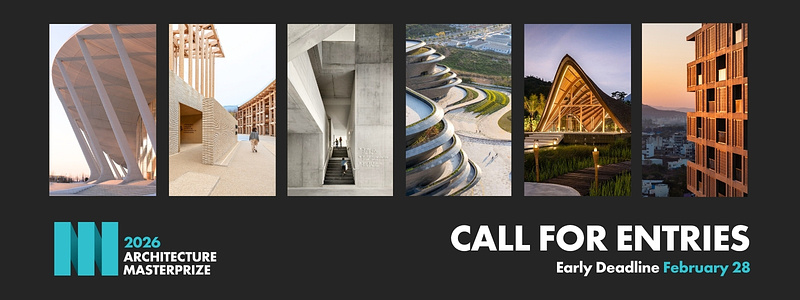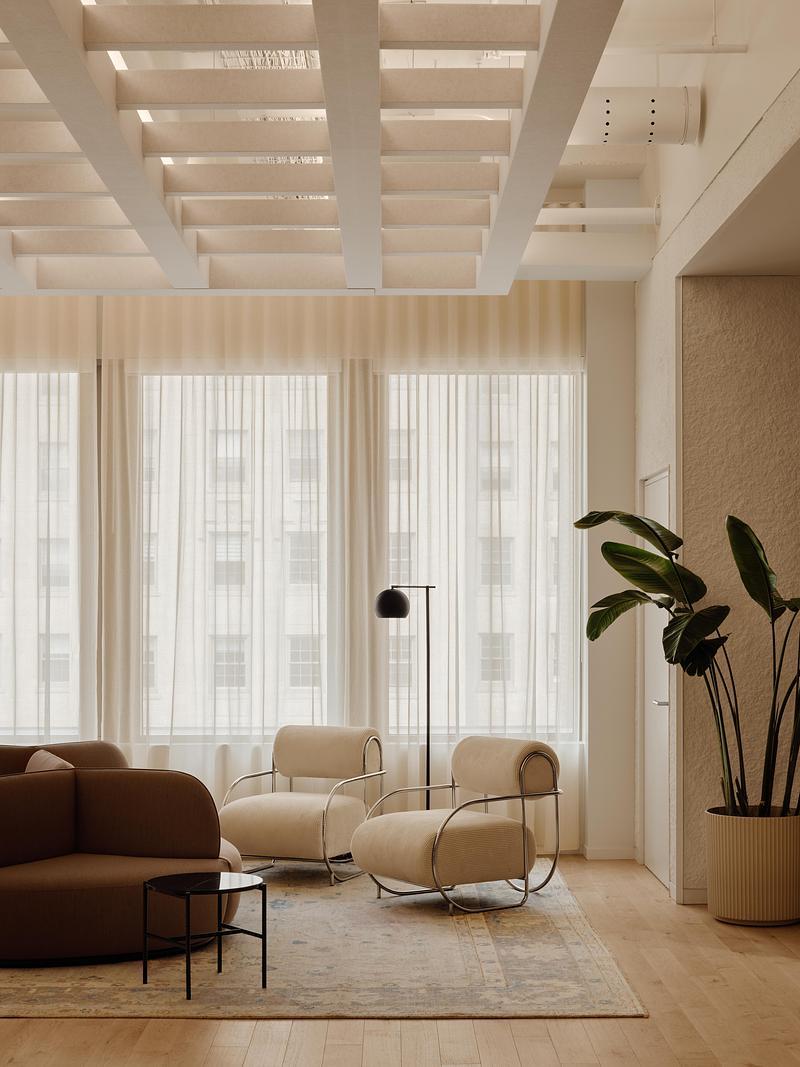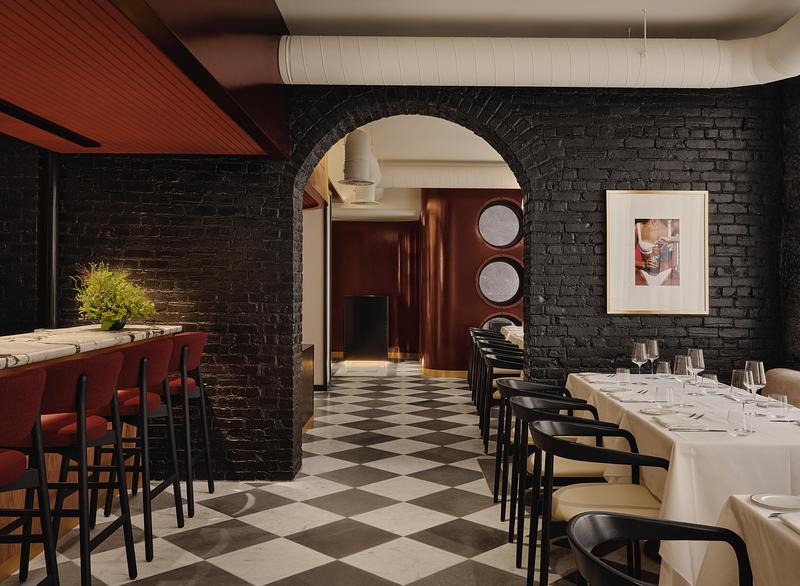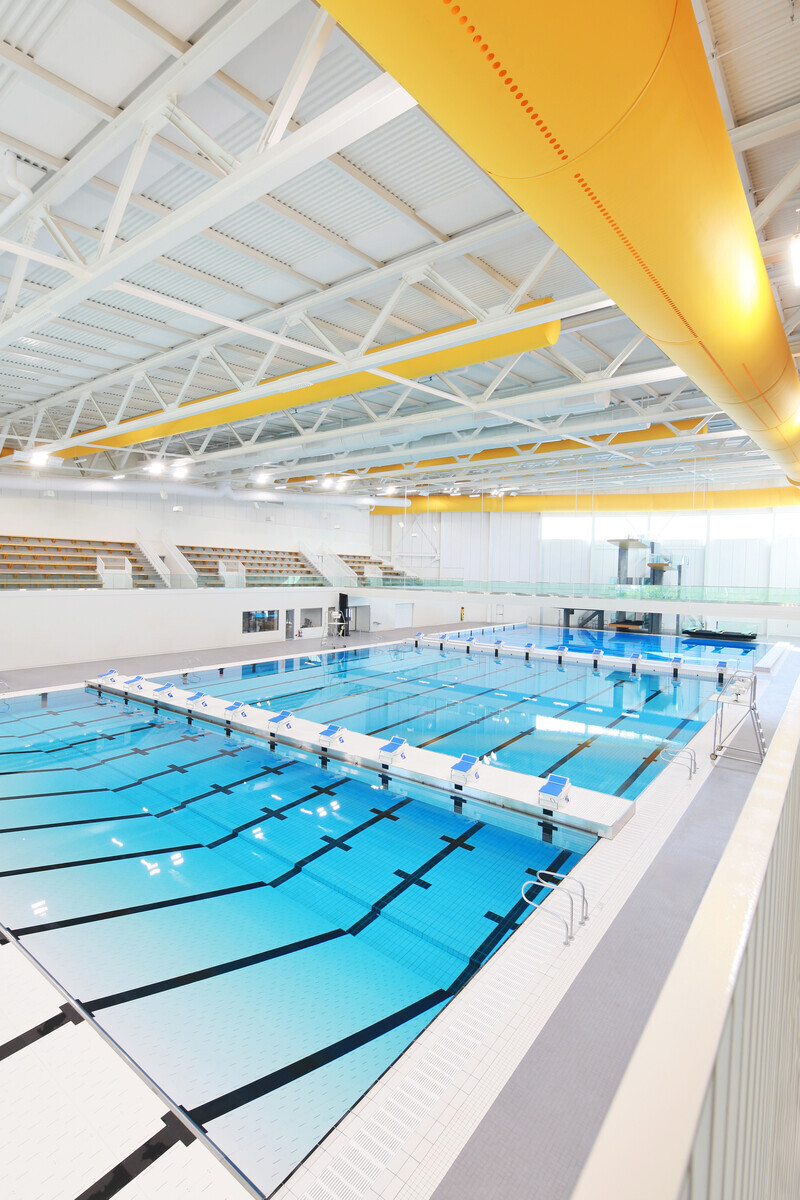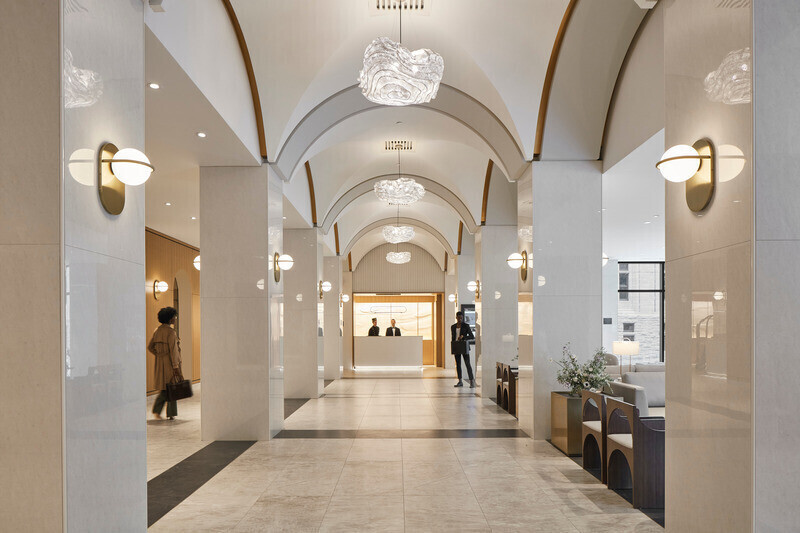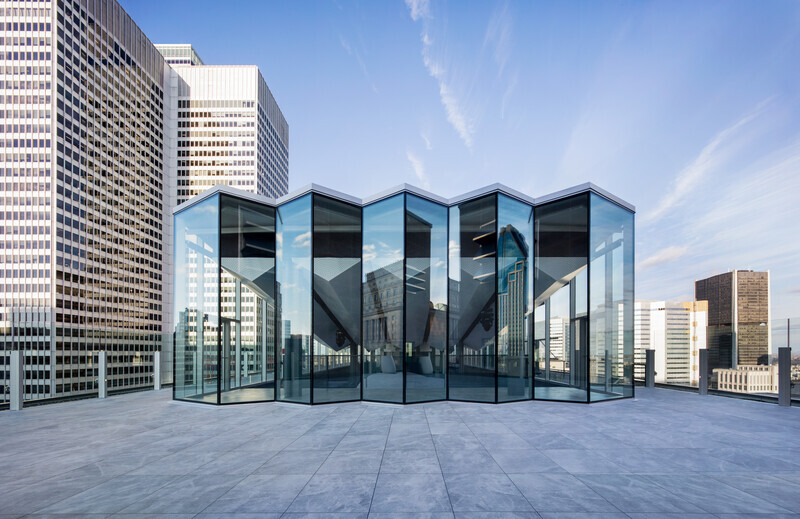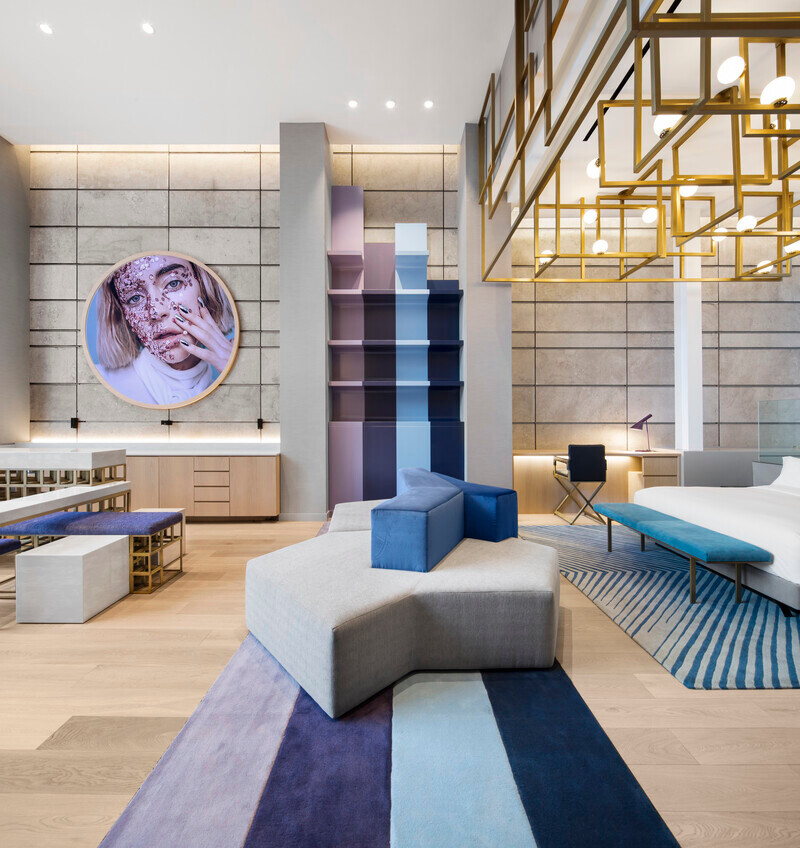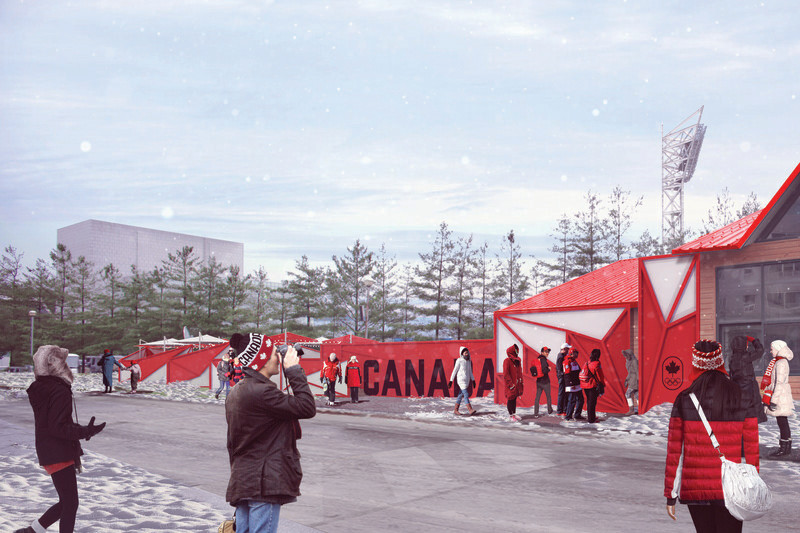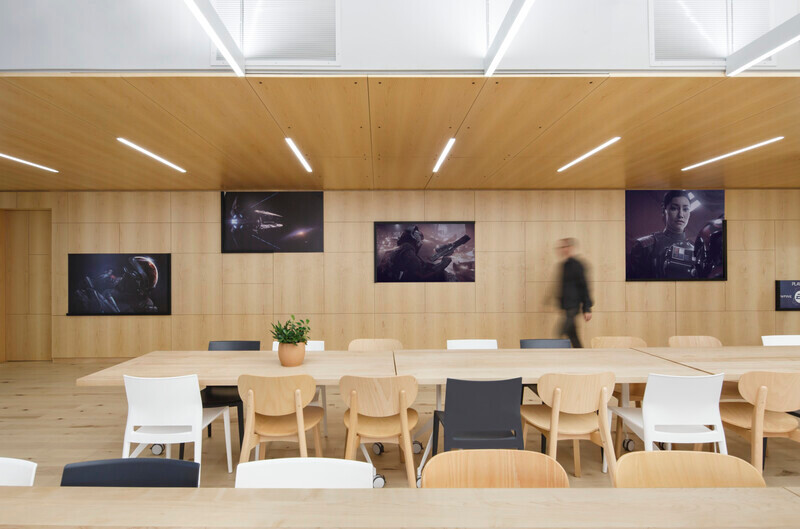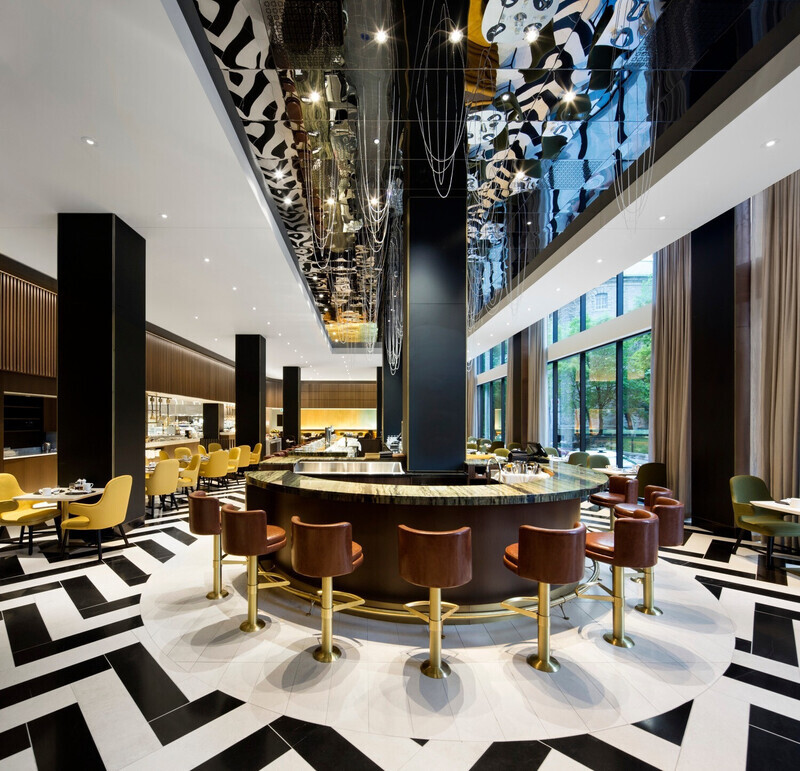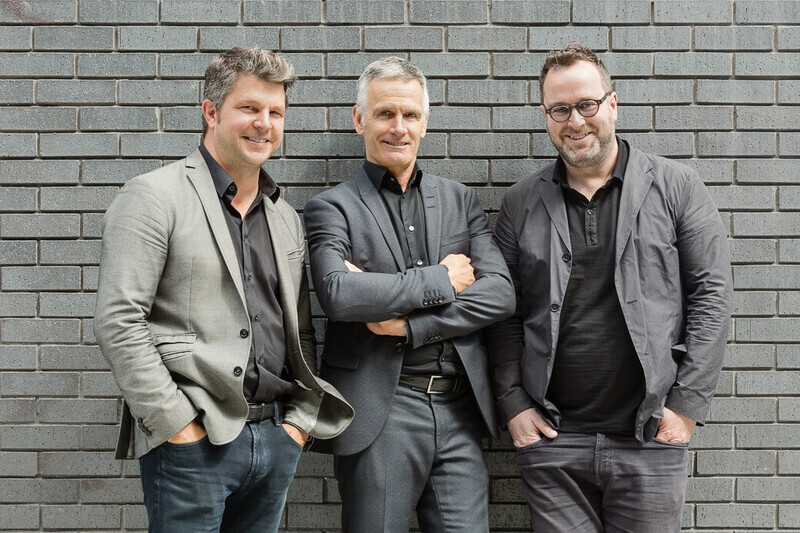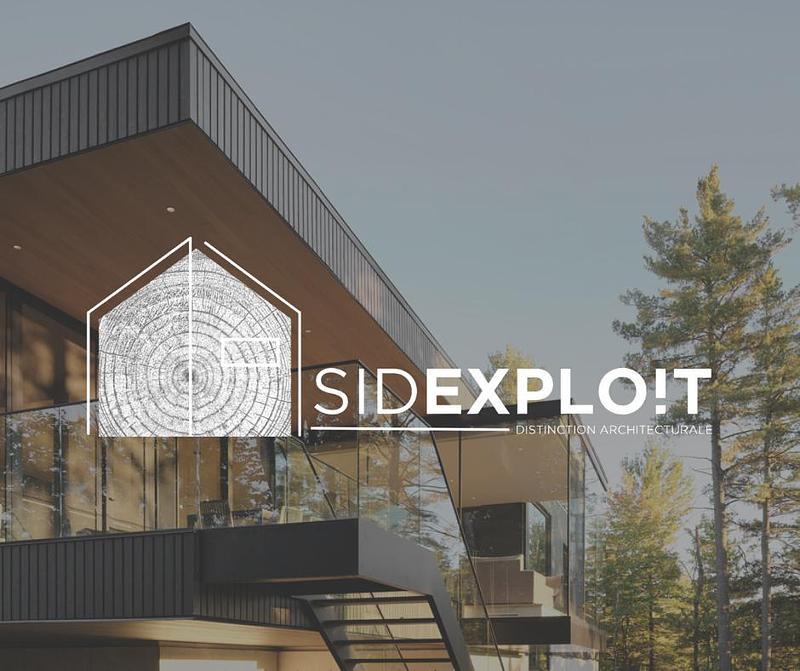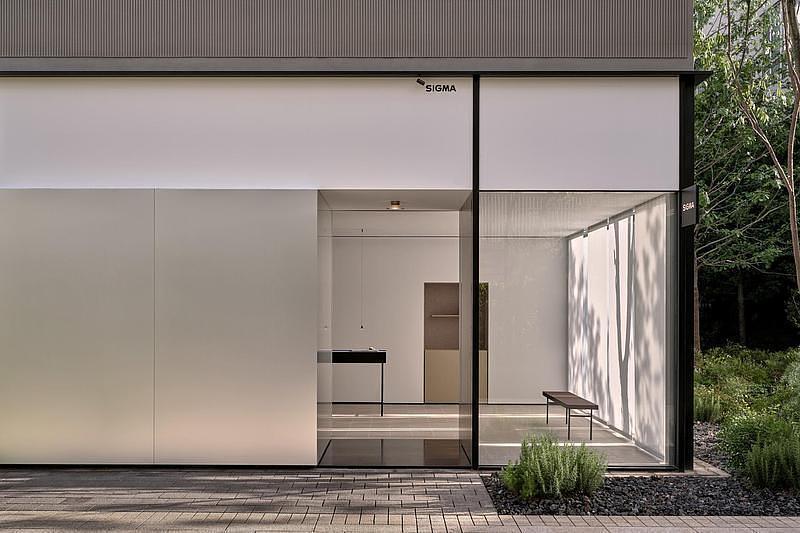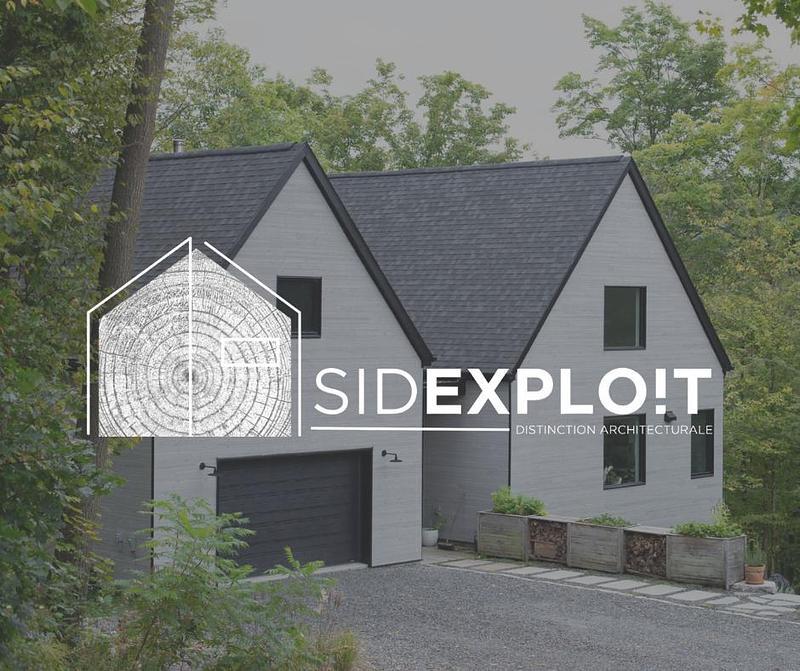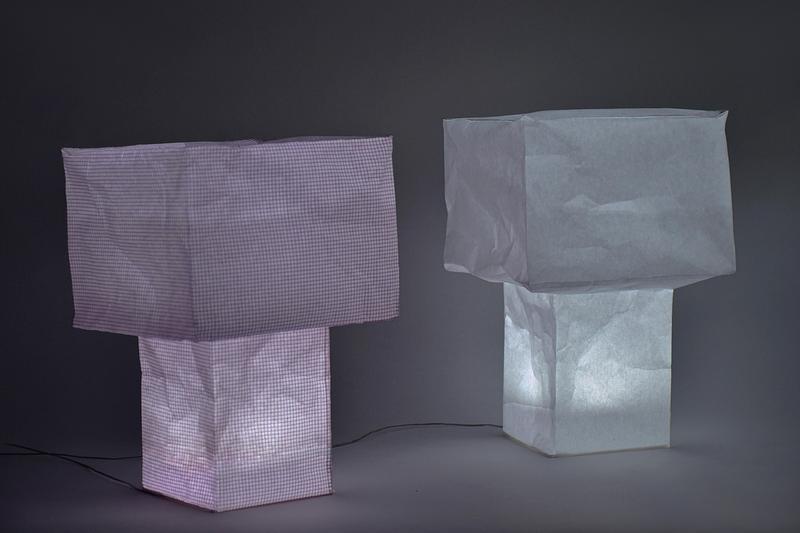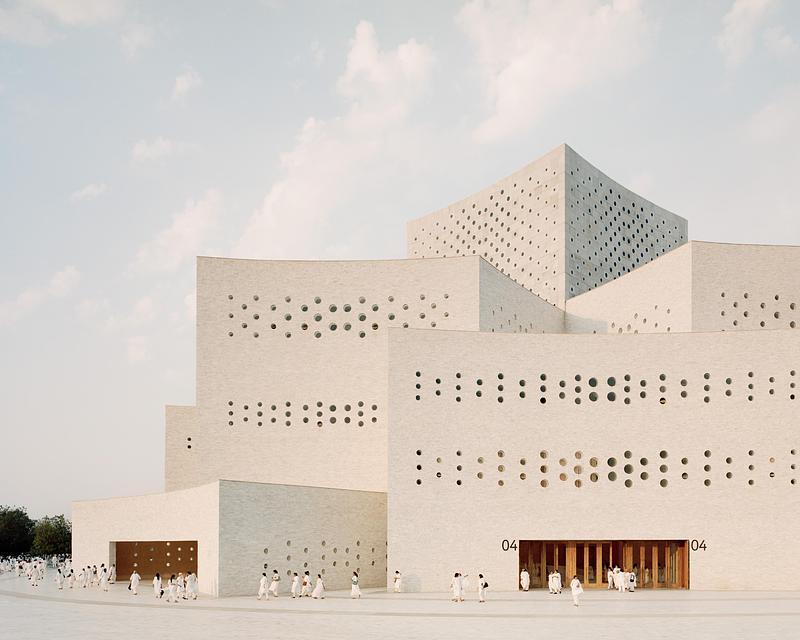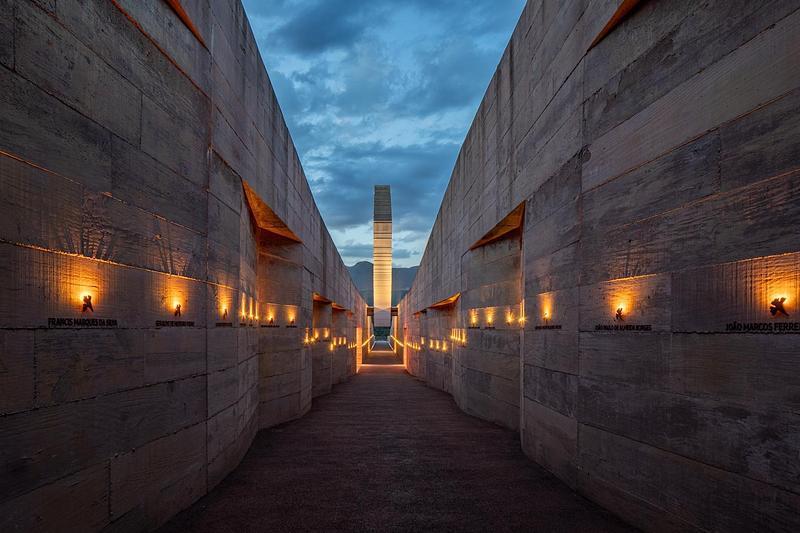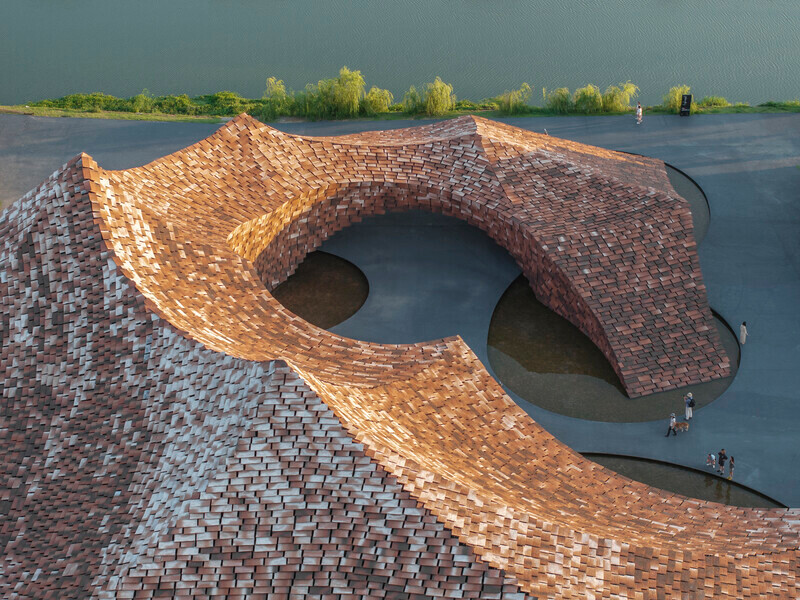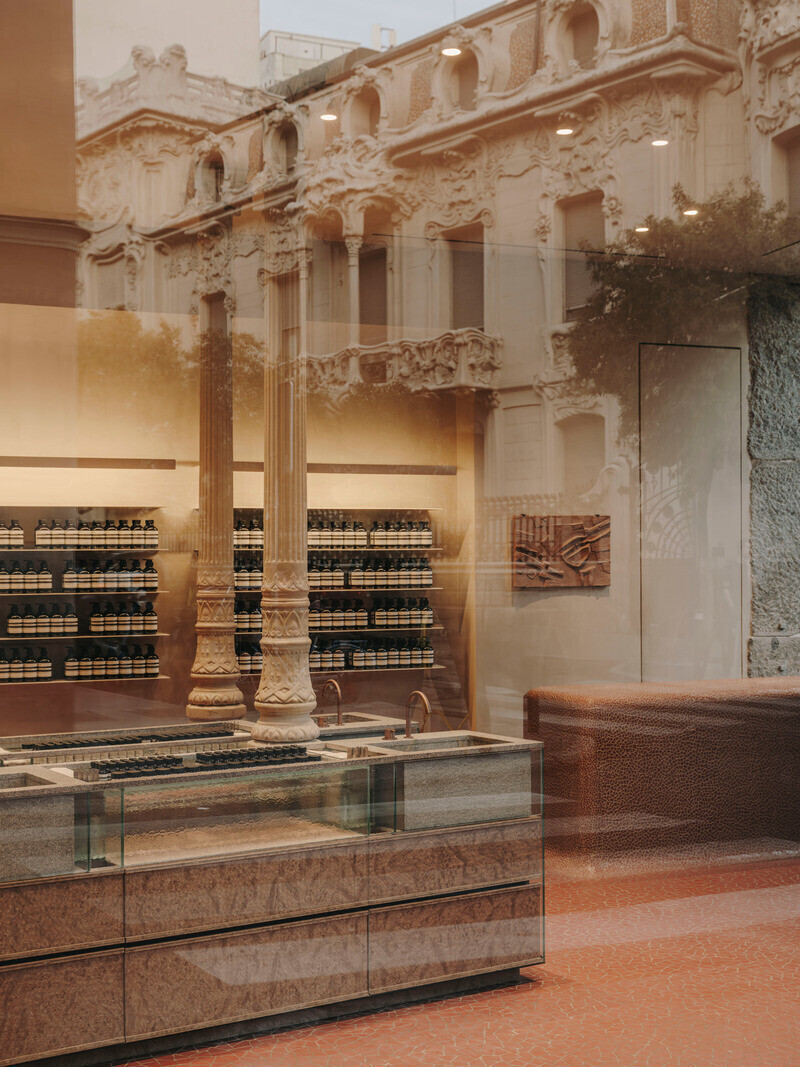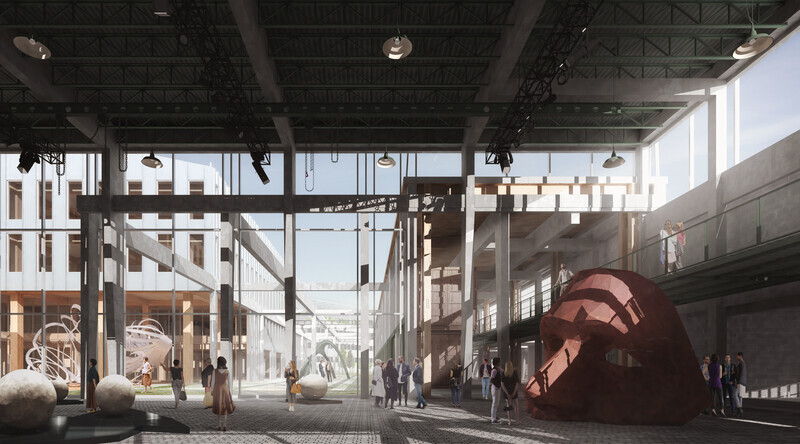
Press Kit | no. 1303-15
Les Ateliers Cabot, winner of C40 Reinventing Montreal 2021
Sid Lee Architecture
Proposal for the requalification of the emblematic Canadian Power Boat Corporation industrial buildings, located at 4000 Saint-Patrick.
The multidisciplinary team comprised of Sid Lee Architecture, Ateliers Créatifs Montréal, Collectif Récolte, and The Centre for Sustainable Development, is proud to announce that Les Ateliers Cabot is the winning project of the 2nd edition of C40 Réinventer Montréal.
Reinventing Cities is a call for projects launched by C40 that aim to encourage carbon neutral urban regeneration and to implement the most innovative ideas for transforming underutilized sites into hotspots of highly sustainable development and resilience, and to serve as a model for future developments.
Les Ateliers Cabot is a place of research, creation, and development; a multifunctional site housing artists’ studios (exhibition, presentation, and event spaces), office space, an industrial and technological incubator, facilities dedicated to food production and distribution, and businesses committed to the pooling and circularity of resources, all operating within a large urban green space.
Les Ateliers Cabot is the genesis of the collective dream of providing non-profit organizations with access to property that provides them with the means for honouring their missions for their community. The project presents a development model anchored in the core of the social and circular economy. The visionaries of the project are comprised of a group of individuals which is supported by a community development NPO comprised of Sid Lee Architecture, Ateliers Créatifs Montréal, the Collectif Récolte, and The Centre for Sustainable Development – with additional members to be added from among the occupants, tenants, owners, and operators of the project. The model also proposes to make 4000 Saint-Patrick a land trust that protects and ensures the permanency of the C40 objectives. In the context of a health crisis, where the most vulnerable populations have incurred the greatest costs, this type of model is a safety net for, and at the service of, citizens.
This approach rebalances traditional development objectives, swapping economic profitability in lieu of the benefits derived from the moral pact between man and the planet.
Les Ateliers Cabot is in the spirit of mininal impact, where the essence of the location is preserved by acting only where it is imperative to do so "mutatis mutandis". This is achieved by recycling, restoring, and reaffirming the industrial soul of the Canadian Power Boat Corporation site - a location built for warship building and connectivity to the city’s transport canals.
Les Ateliers Cabot revolves around water as a historic element to be commemorated, and as a natural resource to be placed at the heart of its landscape and environmental strategy. It is a whole system of valleys, marshes, and basins, with seasonal fluctuations that liven up the site, and presents the possibility to reconnect two major biodiversity corridors of the Aqueduct Canal and the Lachine Canal. The architecture blends into its simplicity, allowing flora and fauna to regain control over the built environment (inspired by Gilles Clément's concept of the third landscape). The site thus acts as a link between man and nature, at a perfect junction between its outlying districts.
Following the requirements of the C40 competition, Les Ateliers Cabot aims to achieve operational carbon neutrality and significantly reduce its intrinsic carbon footprint. This will be achieved using creative low-carbon solutions that can be reproduced on a city-wide scale (e.g.: the energy loop between buildings, the use of wooden structures, the Bicycles Cannibal, the RécoltePool shuttle, the revalorized products from the Quebec startup StillGood, the kickoff prototype for organic photovoltaic membranes from Brilliant Matters, and much more). The collaborative integrated design process between team members (despite COVID-19) predisposed the project to exemplary resilience and sustainability - both environmentally, socially, and economically.
The team has already returned to work to ensure delivery on its commitments and to dive into the next year of due diligence.
A socio-financing campaign will open the project to as many people as possible, with contributions that correspond to the individual and collective capacities of the communities of the Greater Montreal region.
In short, here are the commendable environmental performance indicators selected by the C40 Reinventing Cities team:
- The project achieves at least 64% reduction in the embodied carbon in comparison to a BAU construction in Canada. The reuse of existing buildings and the elimination of basements for the new buildings leads to a 44% reduction of embodied emissions. 40% of embodied emissions is eliminated thanks to the use of low-carbon materials. The three new buildings will be mainly made of wood, including structures in solid wood, beams and columns made of Glulam and CLT floors.
- The project targets an ambitious Net Zero operational emissions that only cover the energy used in buildings but also the emissions from transport and the processing of waste.
- The project is developing ambitious solutions to achieve the zero organic waste goal in 3 years and to reduce by 87% the diversion rate from landfill and recycling centers.
- The project has also a strong emphasis on the restoration of the biodiversity and the natural ecosystem of the site. 50% to 60% of the site’s area will be dedicated to green spaces including a new urban forest that will be developed with the Miyawaki method.
About the Les Ateliers Cabot NPO
Sid Lee Architecture
Sid Lee Architecture is the instigator of the Ateliers Cabot proposal. For this competition, the firm imagined an alternative development approach rooted in community values.
Sid Lee Architecture is a multidisciplinary firm known for its will to make architecture a vehicle that positively impacts the living environments of citizens. We seek to take action on a human scale and create inclusive spaces that foster high-quality experiences. The architectural project is seen as an open and collaborative process leading to innovative solutions to complex issues.
The firm is an affiliate of Sid Lee, and is part of kyu, a new collective of creative businesses.
Ateliers Créatifs Montréal
Ateliers Créatifs Montréal (ACM) is a non-profit real estate developer for the cultural and social environment, whose mission is to develop and protect affordable and sustainable workshops, created in the territory of Montreal. ACM is very proud to be a partner of the Les Ateliers Cabot proposal.
Collectif Récolte
Collectif Récolte is a social enterprise utilizing collective intelligence and community mobilisation to catalyze solutions leading to local and sustainable food practices. Récolte works with a variety of partners to foster a just food ecosystem that supports thriving local economies, healthy communities, and resilient natural environments.
In the coming years, Récolte will pilot several multi-stakeholder programs and projects, including: (1) The Local and Integrated Food System in Montreal (SALIM), whose mission is to strengthen the supply network of healthy, local products for community food organizations and all Montrealers, while improving access to markets for local producers through physical and digital infrastructure. The goal is to make healthy food from local agriculture more accessible in Montreal. (2) Nourish Innovation, a program that supports socially innovative initiatives and models in agri-food, whose mission is to deploy and develop dynamic projects that aim to accelerate the transition to more ethical, sustainable, and resilient local food systems. To do this, the program focuses on supporting initiatives and projects, building capacity and engaging communities, and exploring emerging financing solutions.
The Centre for Sustainable Development
The Centre for Sustainable Development (The Centre) is pleased to be part of the consortium chosen for Les Ateliers Cabot, and to have the opportunity to demonstrate and share its expertise in sustainable real estate management.
The Centre was the first building in Quebec to receive the LEED Platinum NC. The Centre offers a forum for discussion, reflection, and innovation through various events that enable agents of change to meet and collaborate in order to amplify the impacts of their sustainable development actions.
The Centre for Sustainable Development serves as a model and reference for those interested in environmental protection with respect to construction, striving to be an exemplary steward of sustainable methods in terms of real estate management.
Professional credits
Principal experts involved:
- Sid Lee Architecture : Urban Design and architecture
- Arup: Expert – Sustainable development and multiple engineering disciplines: structural, civil, water management, microclimate, and transport
- Akonovia: Expert - Energy efficiency, sustainable building, and efficient systems
- Rousseau Lefebvre: Expert – Landscaping and biodiversity
Other collaborators (in alphabetical order):
- Aquartis: Expert – Water recycling technology
- Brilliant Matters: Incubator – Green technologies (photovoltaic panels)
- Centre PHI (PHI Muse): NPO - Designer and distributor of artistic projects
- Fondaction: Potential investor
- Gehl – Making Cities for People: Expert - Urban designer and researcher
- Grand Potager: NPO - Urban nursery operator
- Groupe C. Laganière : Expert – Environmental soil rehabilitation
- Inerjys: Capital venture – Green technologies
- Local Logic: Expert – Artificial Intelligence in urban characterization
- Ma Bicyclette: Expert – Bike rental and repair workshop near the Lachine Canal
- MASSIVart: Expert - Art and culture
- OSMO Foundation: NPO – Campus Notman (startup incubator, technology sector)
- Pro-Vert Sud-Ouest: NPO - Quality of life of citizens and the environmental health of the South West
- Still Good: Incubator – Circular economy et zero waste (organic matter)
- Regroupement des arts de rue du Québec: NPO - Representing and promoting Quebec Street Arts at the provincial, national, and international levels.
- UNESCO Chair in Urban Landscapes of the University of Montreal: UNESCO Chair - Research, education, and international dissemination in urban landscapes
For more information
- www.newswire.ca/fr/news-releases/-les...
- www.c40reinventingcities.org/fr/profe...
- www.c40reinventingcities.org/
- sidleearchitecture.com/
- www.atelierscreatifs.org/
- recolte.ca/home/
- lamdd.org/en
Media contact
- Sid Lee Architecture
-
Jacinthe De Guire, Manager, Brand & Business Development
- jdeguire@sidleearchitecture.com
- +1 (514) 282.6834 #1321
Attachments
Terms and conditions
For immediate release
All photos must be published with proper credit. Please reference v2com as the source whenever possible. We always appreciate receiving PDF copies of your articles.
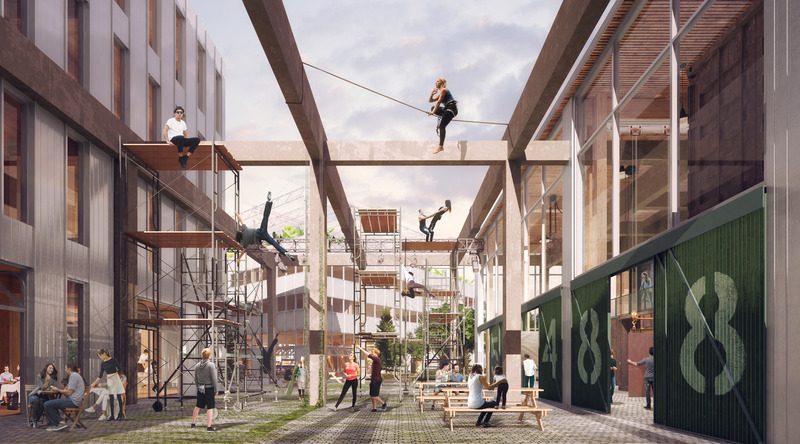
High-resolution image : 12.0 x 6.67 @ 300dpi ~ 5.4 MB
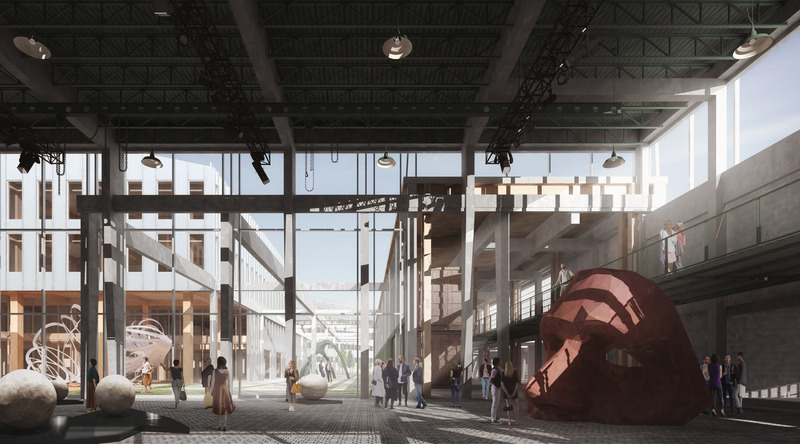
High-resolution image : 12.0 x 6.67 @ 300dpi ~ 3.8 MB
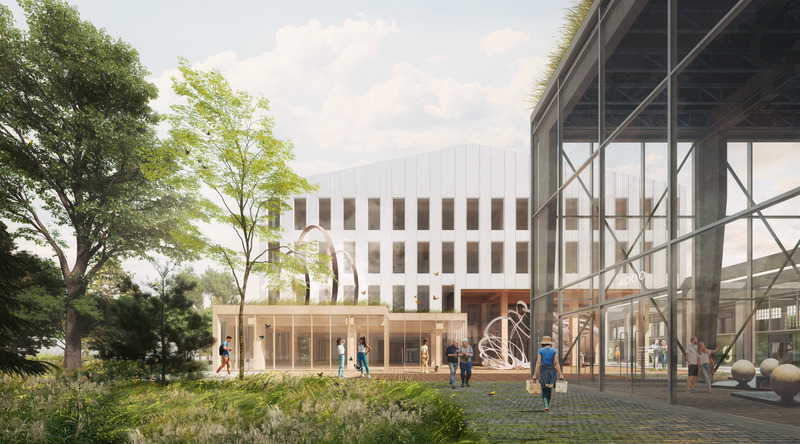
Pedestrian entrance on Boulevard de la Vérendrye. Glimpses of the solid wood structure of building #B (office space), and of the ground floor frontage, which follows the perimeter of the remains of the old southern sawmill - creating an exterior public square adorned with a commemorative work of art.
High-resolution image : 12.0 x 6.67 @ 300dpi ~ 6.2 MB
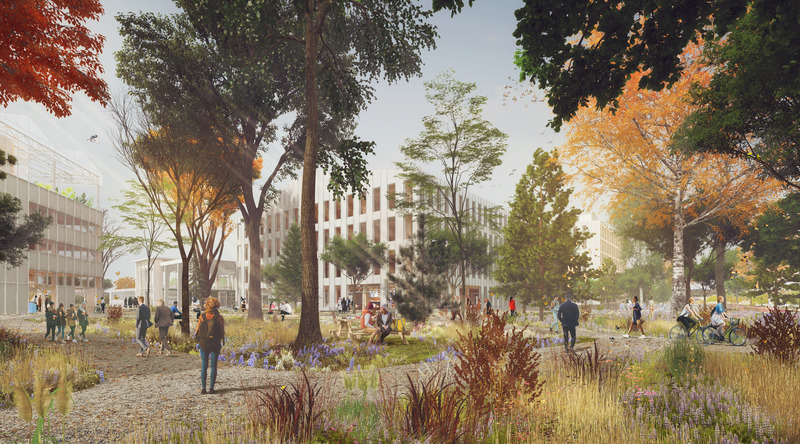
High-resolution image : 12.0 x 6.67 @ 300dpi ~ 8.8 MB
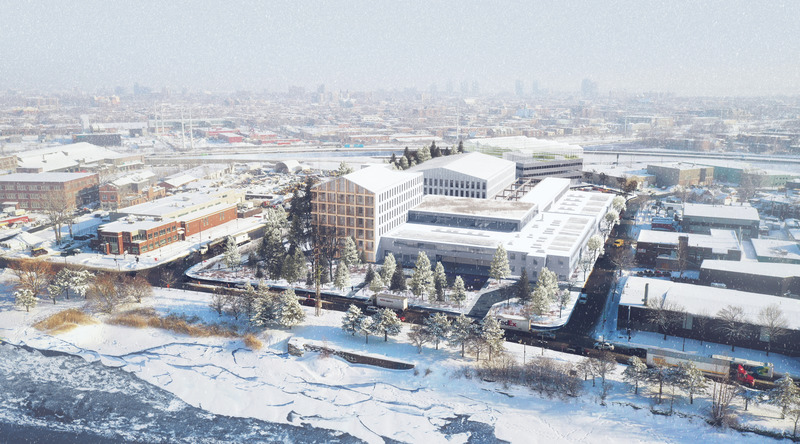
High-resolution image : 12.0 x 6.67 @ 300dpi ~ 6 MB
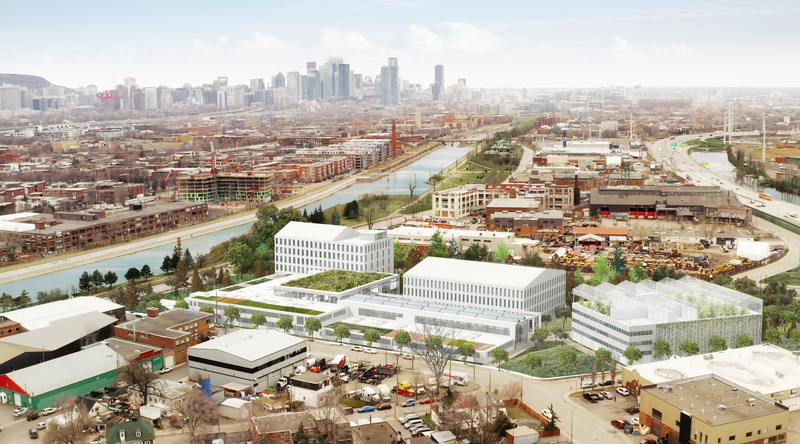
High-resolution image : 12.0 x 6.67 @ 300dpi ~ 5.1 MB
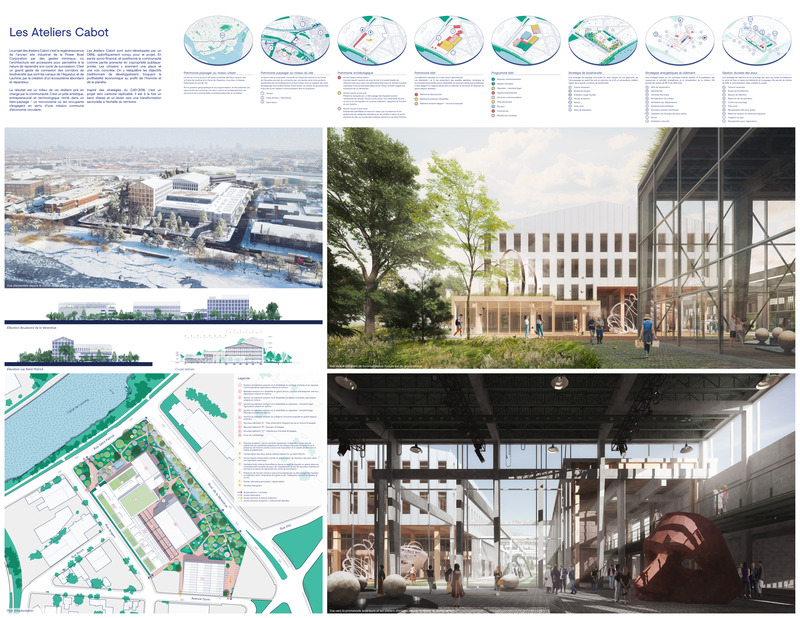
Very High-resolution image : 44.02 x 34.02 @ 300dpi ~ 57 MB

